
Animal Reproduction
Scope & Guideline
Transforming veterinary science through groundbreaking research.
Introduction
Aims and Scopes
- Reproductive Physiology and Endocrinology:
Research on hormonal regulation, reproductive cycles, and physiological processes that govern reproduction in various species. - Assisted Reproductive Technologies (ART):
Innovations and applications of techniques such as in vitro fertilization, embryo transfer, and sperm cryopreservation aimed at enhancing reproductive efficiency. - Animal Welfare and Ethical Considerations:
Studies addressing the ethical implications and welfare considerations of reproductive technologies and practices in both domestic and wild species. - Genetics and Genomics in Reproduction:
Exploration of genetic factors influencing reproductive traits, including the use of gene editing and genomics to enhance fertility and production. - Microbiome and Environmental Influences:
Investigating the impact of the microbiome and environmental factors on reproductive performance and health in various animal species. - Comparative Reproductive Biology:
Research that compares reproductive strategies and technologies across different species, including wildlife and domestic animals.
Trending and Emerging
- Impact of Nutrition on Reproductive Performance:
Research increasingly focuses on how nutritional strategies influence reproductive outcomes, including studies on dietary supplements and their effects on fertility. - Application of Nanotechnology:
Emerging interest in the use of nanotechnology tools to enhance sperm function and reproductive technologies, indicating a novel direction in ART. - Microbiome Research:
A growing body of work is investigating the role of the microbiome in reproductive health, aiming to understand how microbial communities affect fertility and reproductive outcomes. - Non-Invasive Diagnostic Techniques:
There is a notable trend towards the development and application of non-invasive techniques for monitoring reproductive health and success, such as imaging technologies and biomarkers. - Sustainable Practices in Animal Reproduction:
Increasing emphasis on sustainable reproductive practices that reduce environmental impact and enhance animal welfare, aligning with global sustainability goals. - Translational Research in Reproductive Science:
A shift towards translational research that connects laboratory findings with practical applications in animal husbandry and wildlife conservation, bridging the gap between research and practice.
Declining or Waning
- Traditional Breeding Techniques:
There is a noticeable decrease in studies focusing solely on traditional breeding methods, as more emphasis is placed on advanced reproductive technologies and genetic interventions. - Invasive Surgical Techniques:
Research on invasive surgical procedures for reproductive management is declining in favor of less invasive approaches and technologies, reflecting a shift toward animal welfare considerations. - Purely Observational Studies:
The prevalence of purely observational studies without experimental or technological intervention has decreased, as the field increasingly favors studies that integrate technology and innovation. - Species-Specific Studies:
There seems to be a waning interest in species-specific studies that do not have broader implications or applications across multiple species, as comparative and integrative studies gain more attention.
Similar Journals

Abanico Veterinario
Empowering the Veterinary Community Through ResearchAbanico Veterinario is a prominent academic journal dedicated to the field of veterinary science, published by Sergio Martinez Gonzalez. With its ISSN 2007-4204 and E-ISSN 2448-6132, this journal serves as a vital resource for researchers, practitioners, and students interested in the latest advancements and research in veterinary medicine. Although Abanico Veterinario operates on a non-open access model, it provides insightful content that addresses a diverse range of topics such as animal health, veterinary ethics, and innovative practices. The journal aims to promote knowledge sharing and foster collaboration within the veterinary community, ultimately contributing to improved animal care and welfare. With a commitment to excellence and a growing reputation within the field, Abanico Veterinario stands as an essential platform for those seeking to enhance their professional skills and stay abreast of emerging trends in veterinary science.

ZUCHTUNGSKUNDE
Pioneering insights into genetics and veterinary practices.ZUCHTUNGSKUNDE is a distinguished journal published by EUGEN ULMER GMBH CO that has been advancing the field of animal science and zoology since its inception in 1977. With its ISSN 0044-5401 and E-ISSN 1867-4518, this journal provides a vital platform for researchers, professionals, and students in the realms of animal genetics, breeding, and veterinary studies. Although currently categorized in the fourth quartile for both Animal Science and Zoology and Food Animals, ZUCHTUNGSKUNDE serves as an essential resource for sharing innovative research findings and methodologies. Located in Stuttgart, Germany, the journal is strategically positioned to foster collaboration within the European agricultural and biological sciences community. Researchers are encouraged to contribute their insights to enhance the understanding of breeding practices and improve animal welfare and productivity. Despite its challenges, ZUCHTUNGSKUNDE remains committed to addressing key issues within its scope, paving the way for future advancements in animal science.
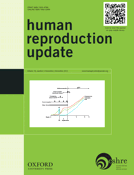
HUMAN REPRODUCTION UPDATE
Your Gateway to Cutting-edge Reproductive ResearchHUMAN REPRODUCTION UPDATE, published by Oxford University Press, stands as a leading journal in the fields of Obstetrics and Gynecology and Reproductive Medicine. With an impressive Q1 ranking in both categories according to the 2023 category quartiles and a significant Scopus rank, it is recognized as one of the top journals globally in these disciplines, catering to the most relevant and cutting-edge research. The journal has been a crucial platform for disseminating vital findings and reviews from 1995 to 2024, contributing to advancements in human reproductive health. With its focus on publishing high-quality, peer-reviewed articles, it serves as an essential resource for researchers, healthcare professionals, and students seeking the latest insights and developments in reproductive science. As the journal aims to foster informed discussions and encourage further research, it remains committed to shaping the future of reproductive health and medicine.

THERIOGENOLOGY
Advancing veterinary reproduction through groundbreaking research.THERIOGENOLOGY is a prestigious academic journal published by Elsevier Science Inc, dedicated to the field of veterinary reproduction and animal science. With an impressive impact factor and recognized as a Q1 journal in various categories including Animal Science and Zoology, Equine, Food Animals, and Small Animals, THERIOGENOLOGY has established itself as a vital resource for researchers, practitioners, and students alike. Founded in 1974, the journal covers a broad spectrum of topics related to reproductive physiology, biotechnology, and the health management of food and companion animals. Although it does not currently offer open access, researchers can benefit from its comprehensive articles and reviews that push the boundaries of knowledge in veterinary science. With a significant placement in the Scopus rankings, ranking #1 in multiple veterinary categories, THERIOGENOLOGY serves as an essential platform for advancing the understanding of reproductive strategies and practices, thereby contributing directly to the fields of animal husbandry and veterinary medicine.
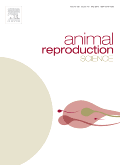
ANIMAL REPRODUCTION SCIENCE
Exploring the Science Behind Animal ReproductionANIMAL REPRODUCTION SCIENCE, published by Elsevier, is a leading journal dedicated to the field of animal reproduction and developmental biology. With an ISSN of 0378-4320 and an E-ISSN of 1873-2232, it serves as a vital resource for researchers, professionals, and students interested in advancing their understanding of reproductive mechanisms across various species. The journal has been recognized for its high-quality contributions, achieving a Q1 ranking in Animal Science and Zoology and showcasing its significant impact in the areas of Endocrinology and Veterinary Medicine as per the 2023 category quartiles. Covering a wide range of topics from reproductive physiology to genetic implications, this journal not only highlights innovative research but also fosters interdisciplinary dialogue in the rapidly evolving world of animal science. Though not currently offering open access, it remains a crucial platform for disseminating pivotal research findings from across the globe. With its rich history dating back to 1936, ANIMAL REPRODUCTION SCIENCE continues to drive excellence in animal reproduction studies, positioning itself at the forefront of the field, and solidifying its relevance in both science and industry.
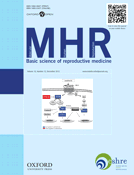
MOLECULAR HUMAN REPRODUCTION
Innovating Understanding in Human Reproductive ScienceMOLECULAR HUMAN REPRODUCTION, published by Oxford University Press, is a pivotal journal dedicated to advancing the field of reproductive biology. Since its inception in 1995, the journal has been recognized for its rigorous peer-reviewed research and substantial contributions to the understanding of molecular mechanisms underlying human reproduction. With an impressive impact factor and ranked within the top tiers (Q1 and Q2) across diverse categories including Embryology, Obstetrics and Gynecology, and Reproductive Medicine, it stands as an essential resource for researchers, healthcare professionals, and students alike. The journal aims to publish cutting-edge research that explores the complexities of human reproduction at the molecular and cellular levels, fostering a deeper understanding that can be translated into clinical practice. Although it currently operates under a subscription model, the valuable insights and groundbreaking findings featured within its pages continue to influence the trajectory of reproductive health research globally. Located in the heart of Oxford, United Kingdom, the journal remains committed to addressing vital challenges in the field and promoting innovative scientific dialogue.

Buffalo Bulletin
Fostering collaboration in buffalo health and management.Welcome to the Buffalo Bulletin, a prominent journal published by the International Buffalo Information Center that serves as a vital resource in the fields of animal science and veterinary studies. Established in 2008, this journal has become a significant platform for sharing groundbreaking research and developments specific to buffalo ecology, breeding, and health management, contributing to improved husbandry practices in Thailand and beyond. Despite its current Q4 ranking in Animal Science and Q3 in Veterinary (Miscellaneous) categories based on 2023 metrics, the Buffalo Bulletin is dedicated to elevating knowledge and innovation, thereby enriching the scientific community's understanding. With its commitment to open access, readers can conveniently access a compendium of peer-reviewed research designed to inform and inspire practitioners, researchers, and students alike. Through its convergence of interdisciplinary insights, the Buffalo Bulletin plays a crucial role in advancing the field and fostering a collaborative approach to the challenges faced in animal healthcare and management.
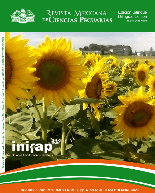
Revista Mexicana de Ciencias Pecuarias
Empowering Knowledge in Animal Health and ProductionRevista Mexicana de Ciencias Pecuarias, published by INIFAP-CENID PARASITOLOGIA VETERINARIA, is a prominent open-access journal since 2010 that caters to the fields of Animal Science and Veterinary Medicine. Based in Mexico, this journal addresses critical issues in animal health, production, and welfare, making it instrumental for researchers, professionals, and students seeking to advance their knowledge and practices. With an impact factor that reflects its growing influence, particularly in the Q3 quartile rankings in both Animal Science and Zoology as well as Veterinary (Miscellaneous) categories, the journal provides a vital platform for the dissemination of innovative research and findings. Additionally, its Scopus Ranks position highlights its role in publishing significant contributions to the fields of Veterinary Science and Agricultural Biology. The journal fosters a collaborative learning environment through its open-access model, ensuring that valuable insights are accessible to a wide audience. For those committed to enhancing animal well-being and advancing veterinary practices, the Revista Mexicana de Ciencias Pecuarias stands as a key resource through its rigorous peer-reviewed publication process and commitment to scientific excellence.
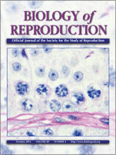
BIOLOGY OF REPRODUCTION
Advancing the Frontiers of Reproductive ScienceBIOLOGY OF REPRODUCTION is a premier journal published by Oxford University Press Inc, dedicated to advancing research in the fields of reproductive biology, cell biology, and reproductive medicine. With an impressive impact factor and a strong ranking as Q1 in reproductive medicine and miscellaneous medicine, as well as Q2 in cell biology, this journal offers a vital platform for disseminating innovative findings and pivotal studies that shape our understanding of reproductive processes. Since its inception in 1969, BIOLOGY OF REPRODUCTION has become a key resource for scientists, clinicians, and students alike, providing insights that drive the future of reproductive health and research. Although not an open-access publication, it remains a respected authority, reflecting a commitment to high-quality peer-reviewed articles. The journal's comprehensive scope includes molecular and cellular aspects of reproduction, reproductive health, and associated technologies, making it indispensable for professionals looking to stay at the forefront of breakthroughs within the field.
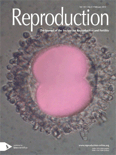
REPRODUCTION
Connecting researchers to shape the future of reproduction.REPRODUCTION, published by BIOSCIENTIFICA LTD, stands at the forefront of research in the fields of reproductive and developmental biology. With a focus on advancing our understanding of reproductive health and mechanisms, the journal has garnered an impressive reputation, consistently ranking in the first quartile for key categories including Embryology, Endocrinology, Obstetrics and Gynecology, and Reproductive Medicine in 2023. Notably, it holds an esteemed position in the Scopus rankings, with high percentiles that reflect its significant impact in the scientific community. The journal is committed to open access, promoting the broad dissemination of high-quality research to facilitate innovative discoveries and interdisciplinary collaboration. Situated in the United Kingdom, REPRODUCTION serves as a vital resource for researchers, professionals, and students eager to contribute to the evolving landscape of reproductive sciences and related fields.